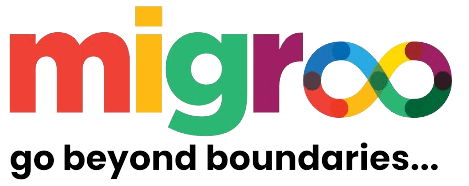In an increasingly globalized world, learning a foreign language is more than just a personal achievement—it’s a powerful career move. Among the many languages one can learn, German stands out as a practical and strategic choice, especially for those aspiring to study or work in Germany. With its world-renowned education system, thriving job market, and growing demand for skilled professionals, Germany has become a top destination for international students and job seekers alike.
But there’s one essential skill that can set you apart and truly unlock the opportunities Germany has to offer—proficiency in the German language.
This blog explores how enrolling in a German language course can be a gateway to building a successful future in Germany.
Why Learn German?
Germany is the most widely spoken native language in Europe and the official language of Germany, Austria, Switzerland, and parts of Belgium and Luxembourg. It is also one of the most important business languages globally, especially in engineering, healthcare, science, and education.
According to recent statistics, Germany has over 400,000 international students and is among the top five study destinations worldwide. With an export-driven economy and thousands of multinational companies, Germany also offers a booming job market for foreign professionals.
In both academic and professional settings, knowing the German language can significantly increase your access, integration, and long-term success.
How German Language Skills Help in Studying in Germany
1. Admission to German-Taught Programs
While many universities offer English-taught courses, a large number of Bachelor’s and even some Master’s programs are still conducted in German. To gain admission to these programs, students are usually required to prove their language proficiency through standardized exams like TestDaF or Goethe-Zertifikat.
By completing a structured German language course up to B2 or C1 level, you improve your eligibility for a broader range of academic programs, especially in fields like engineering, medicine, law, and social sciences.
2. Better Classroom Participation and Understanding
Even in English-taught programs, day-to-day interactions in Germany—lectures, seminars, group discussions, and academic resources—may involve German. Proficiency in the language allows you to:
-
Participate confidently in academic discussions
-
Understand technical terms and lectures more effectively
-
Build better relationships with professors and classmates
3. Scholarships and Internships
Many scholarship providers, such as DAAD (German Academic Exchange Service), appreciate or require knowledge of the German language. Moreover, when applying for internships or research opportunities during your studies, companies often prefer students who can communicate in German, especially in small and medium enterprises (SMEs).
German Language and Career Opportunities
1. Wider Job Market Access
While Germany is home to several international companies that use English as a working language, the majority of local businesses operate in German. By learning the language, you vastly increase your employability in industries like:
-
Engineering and Manufacturing
-
Healthcare and Nursing
-
Information Technology
-
Automotive Industry
-
Pharmaceuticals and Life Sciences
-
Hospitality and Tourism
Having German language skills also improves your chances of being hired in public sector jobs, which generally require fluency in the local language.
2. Eligibility for Ausbildung Programs
Germany’s dual vocational training system (Ausbildung) is a unique program that combines classroom education with on-the-job training. It is especially popular among international students after high school.
To join an Ausbildung program, basic to intermediate German proficiency (usually B1 or B2 level) is required. A German language course prepares you for entrance into these highly sought-after programs, which not only provide free education but also offer stipends and a path to permanent residency.
3. Networking and Workplace Communication
Workplace communication is a key factor in your professional success. Understanding and speaking German enables you to:
-
Integrate better into your team and work culture
-
Understand job expectations and technical discussions
-
Network with professionals and attend seminars or job fairs
In short, learning German can lead to faster promotions, better roles, and increased respect in your work environment.
Cultural Integration and Everyday Life
Living in Germany isn’t just about studying or working—it’s about building a life. Whether you are grocery shopping, visiting the doctor, using public transport, or attending community events, knowing the language simplifies your everyday experiences.
With German language skills, you can:
-
Feel more at home and less isolated
-
Form genuine connections with locals
-
Understand local laws, policies, and civic duties
-
Enjoy German culture, media, literature, and entertainment more deeply
Your ability to integrate culturally can also reflect positively during visa renewals, permanent residency applications, or citizenship processes.
Language Levels and What You Need
German language proficiency is measured according to the Common European Framework of Reference for Languages (CEFR). Here’s what you typically need:
-
A1 & A2 (Beginner): Basic communication, everyday vocabulary
-
B1 & B2 (Intermediate): Professional and academic communication, eligibility for Ausbildung and many university courses
-
C1 & C2 (Advanced): Required for medical professionals, researchers, and advanced academic programs
Depending on your goal—study, work, or immigration—most institutions and employers require a minimum of B1 or B2 proficiency.
Choosing the Right German Language Course
Whether you’re a beginner or looking to upgrade your level, choosing the right German course is essential. Here’s what to look for:
-
Qualified Instructors: Certified teachers with experience in teaching German as a foreign language
-
Structured Curriculum: Courses aligned with CEFR and geared toward exam preparation (Goethe, TestDaF, etc.)
-
Interactive Learning: Speaking, listening, reading, and writing practice with real-life scenarios
-
Flexible Timings: Weekend and weekday options for students and working professionals
-
Certification Support: Exam guidance and practice tests to help you pass language certifications confidently
Institutes like Migr8 in Delhi offer personalized German language training for students, professionals, and individuals aiming to move to Germany for education or career advancement.
Real-Life Success Stories
Thousands of students and professionals have successfully transitioned to life in Germany after completing German language training. For example:
-
A Delhi-based nursing student learned German up to B2 and is now working in a hospital in Munich under a sponsored Ausbildung program.
-
An engineering graduate from India gained admission to a public university in Berlin, thanks to his C1-level German skills, and now works at a top automotive firm.
-
A business analyst enhanced her resume by learning German and landed a remote job with a Berlin-based startup.
These real stories underscore how learning German isn’t just an academic exercise—it’s a life-changing decision.
Final Thoughts: Your Future Starts with “Hallo!”
In 2025 and beyond, the ability to communicate in German will be one of your greatest assets if you plan to study, work, or settle in Germany. A German language course is not just about learning vocabulary—it’s about unlocking opportunities in education, career, and life.
From gaining admission to top universities to landing high-paying jobs or securing permanent residency, language proficiency is a key pillar of your success. It helps you adapt faster, connect deeper, and thrive better.
So, whether you’re a student, a working professional, or simply someone dreaming of a better future in Germany—start your journey with the German language today. It’s not just a course; it’s your first step toward a brighter future.


